When it comes to obtaining your medical records, navigating the process can sometimes lead to unexpected hurdles, like a denial of your request. Many individuals find themselves unsure of why their request was turned down, making it essential to understand the reasons behind such decisions. Whether it's due to incomplete forms or privacy regulations, grasping these nuances can empower you to take the right steps forward. Curious to learn more about how to effectively handle a medical records request denial? Keep reading!
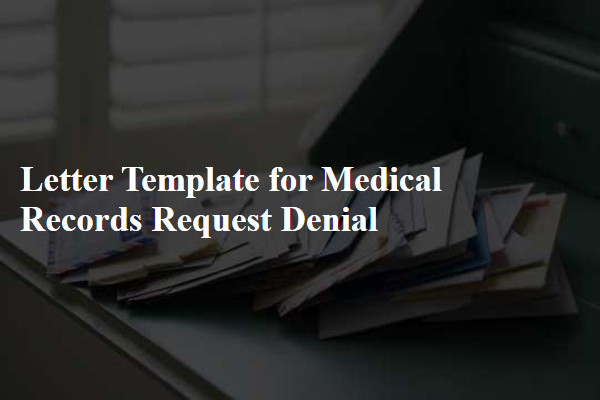
Legal compliance and protocols
Denial of medical records requests can occur under specific legal compliance regulations and established protocols. The Health Insurance Portability and Accountability Act (HIPAA) outlines conditions where requests may be denied, such as when records contain information about another individual or when the request is deemed unreasonably burdensome, as stated in section 164.524 of the law. Additionally, state laws can influence the process; for example, California's Confidentiality of Medical Information Act governs the access and protection of medical records. Protocols require healthcare providers to document the reasons for denial in writing and notify the requester within a designated timeframe, usually within 30 days as per federal regulations. This communication must encompass information about the right to appeal the decision and any alternate steps available to access similar medical information.
Patient confidentiality and privacy laws
Patient confidentiality and privacy laws protect sensitive medical information. The Health Insurance Portability and Accountability Act (HIPAA) mandates strict protocols for disclosing medical records. Unauthorized requests can result in denial, ensuring personal data remains secure. Healthcare entities must assess requests carefully, verifying legitimacy while safeguarding patient rights and maintaining trust in the medical system. Denials often require written notification, citing specific regulations governing information release and highlighting the importance of protecting individuals' private health information.
Specific denial reason
Medical records requests can be denied for various reasons, such as insufficient identification provided, records being protected under privacy laws like HIPAA (Health Insurance Portability and Accountability Act), or the specific records requested being non-existent or expired. In the case of insufficient identification, a patient might not provide a government-issued ID or the required authorization forms. In instances of privacy laws, if a request pertains to sensitive information like mental health records, they may require additional authorization to release. Moreover, if historical records are requested that exceed retention policies, the facility may not retain those records, leading to denial. Such reasons ensure compliance with legal and ethical standards in the management of medical records.
Appeal process information
A medical records request denial can occur due to various reasons, including insufficient authorization, privacy concerns, or incomplete information. Understanding the appeals process is crucial for patients seeking access to their records. Primarily, the denial notice usually includes a specific reason for the rejection and guidelines on how to appeal the decision. Patients should draft a written appeal addressed to the healthcare provider or facility, citing relevant details such as their full name, date of birth, and the specific records sought. The appeal should reference any supporting documentation, including identification and proof of related medical history. Additionally, it is important to respect any deadlines outlined in the denial correspondence, as prompt action can significantly impact the outcome of the appeal. Many states also have legal provisions securing patients' rights to access their medical records under laws such as the Health Insurance Portability and Accountability Act (HIPAA), and knowing these rights can strengthen the appeal process.
Contact information for follow-up inquiries
Patients seeking copies of their medical records from healthcare facilities may face denial due to various reasons, such as incomplete documentation or privacy regulations. Facilities like hospitals or clinics often adhere to HIPAA guidelines, which dictate how patient information is managed and accessed. In case of a denial, patients are encouraged to contact the facility's medical records department directly. The contact information typically includes a designated phone number and email address specifically for inquiries, ensuring timely communication. Patients should note specific details such as the department's operational hours and any forms required for follow-up requests to facilitate a smooth process.
Letter Template For Medical Records Request Denial Samples
Letter template of medical records request denial for insufficient identification.
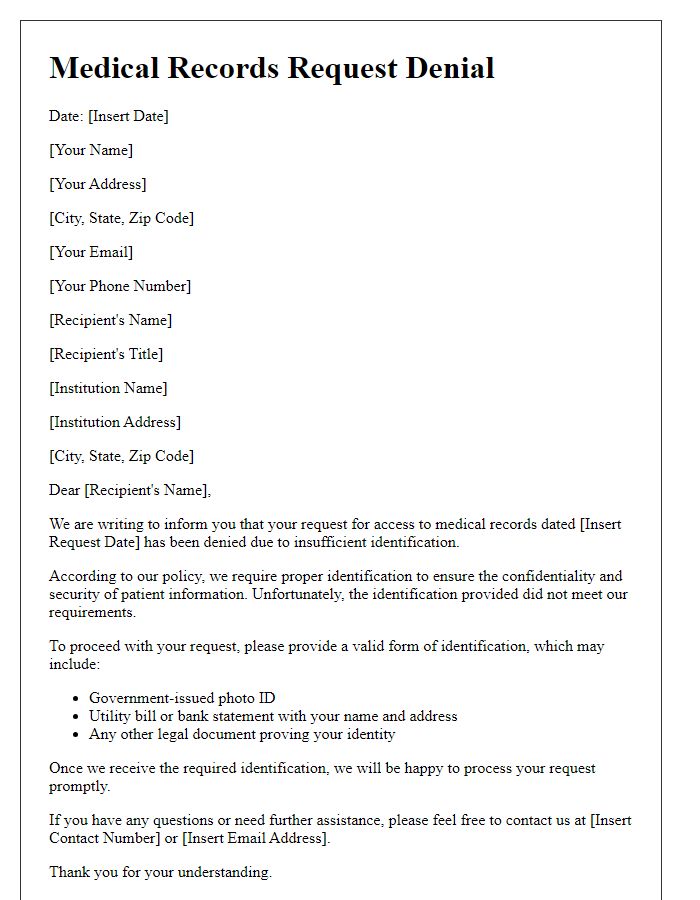
Letter template of medical records request denial due to incomplete documentation.
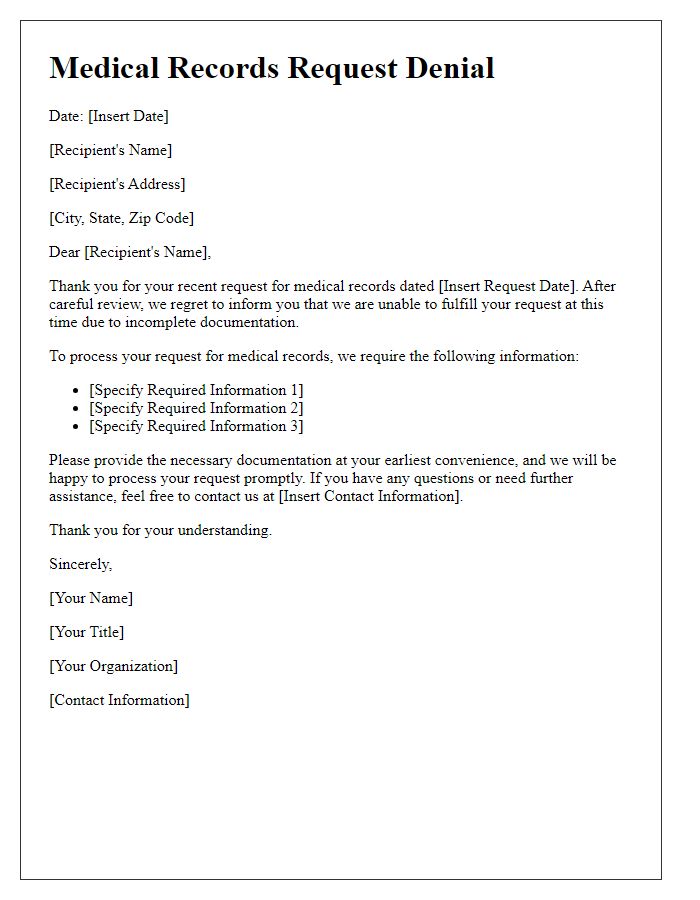
Letter template of medical records request denial based on privacy policy.
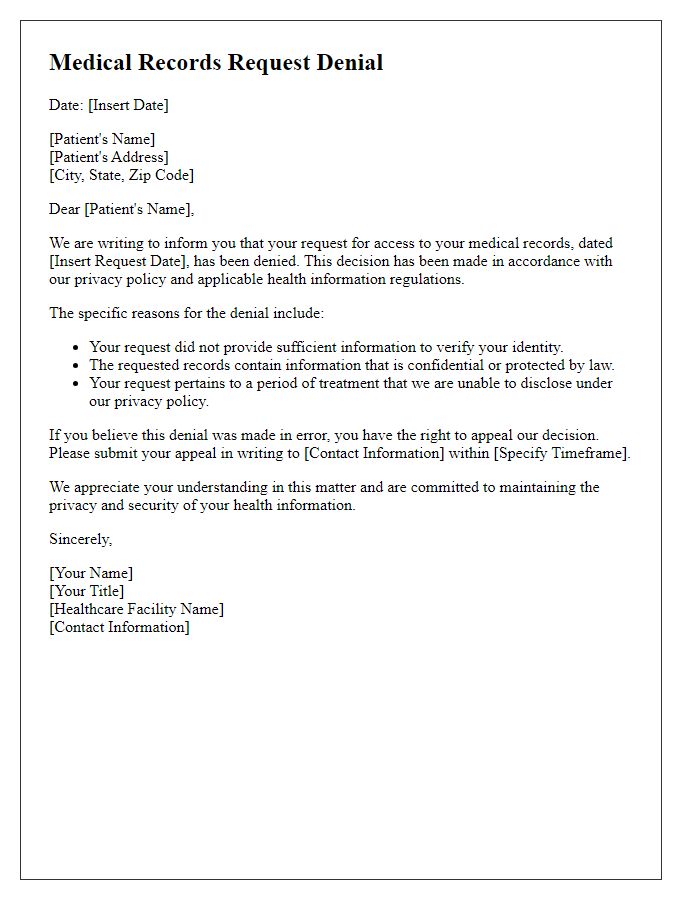
Letter template of medical records request denial for non-patient request.
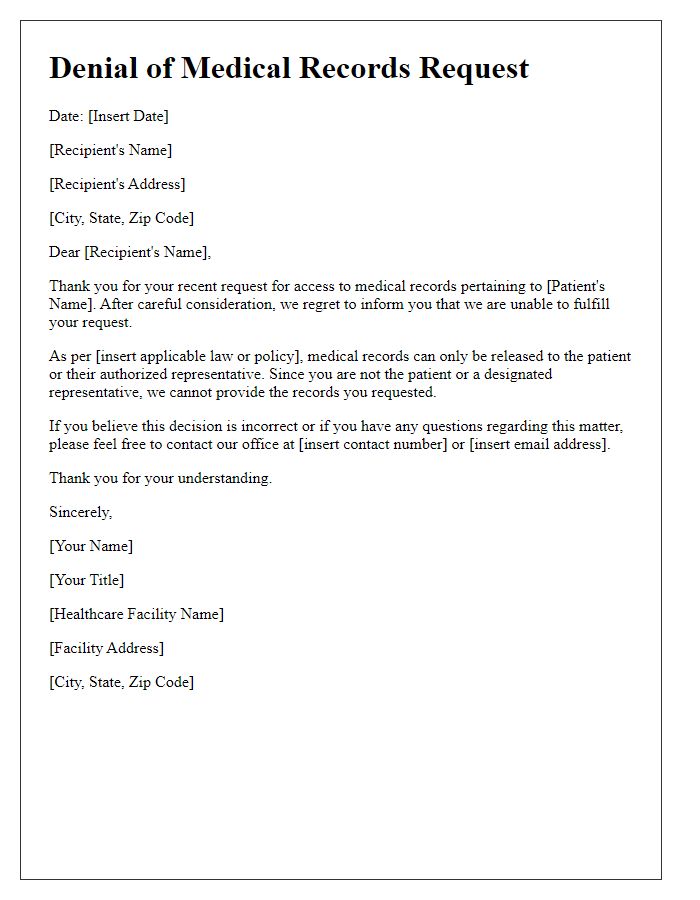
Letter template of medical records request denial due to outstanding balances.
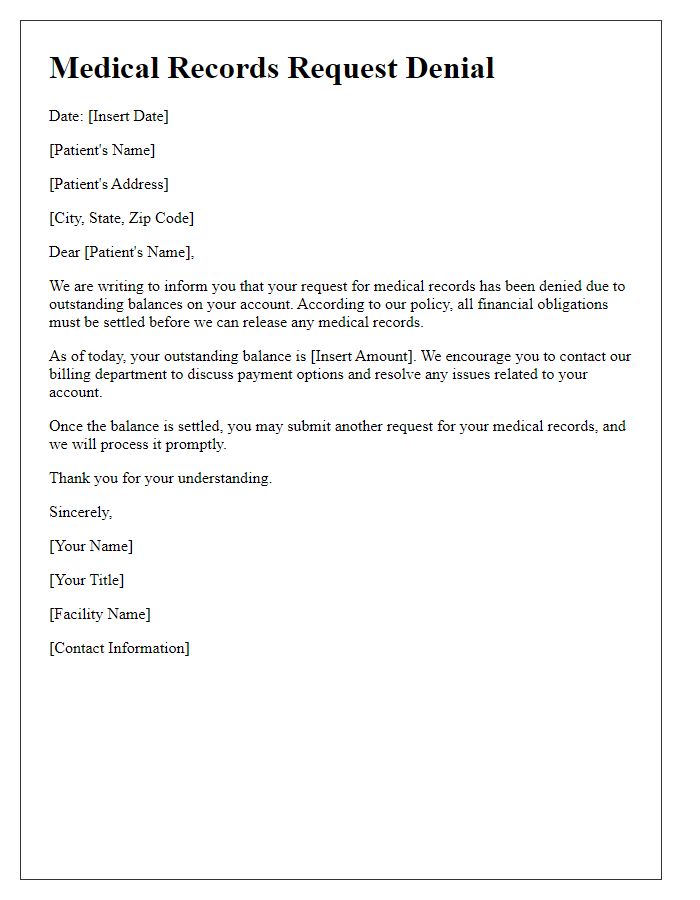
Letter template of medical records request denial for specific record unavailability.
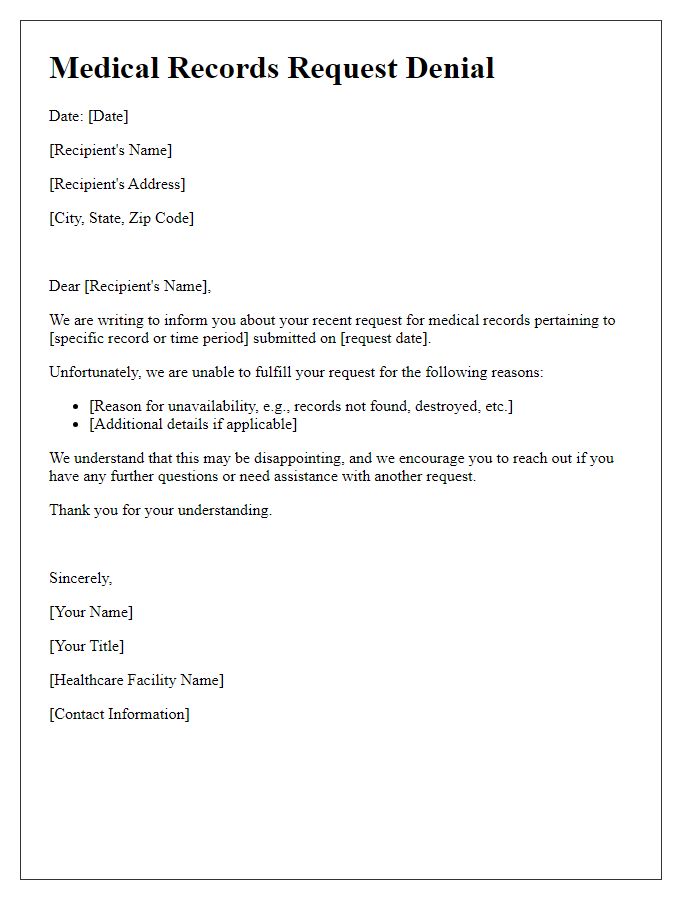
Letter template of medical records request denial due to administrative errors.
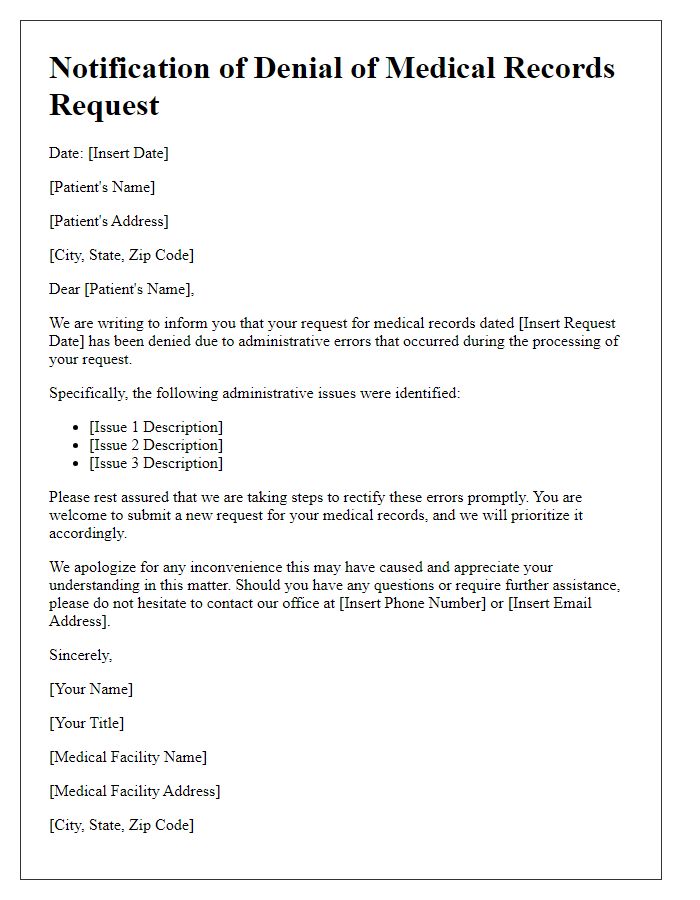
Letter template of medical records request denial because of unauthorized access.
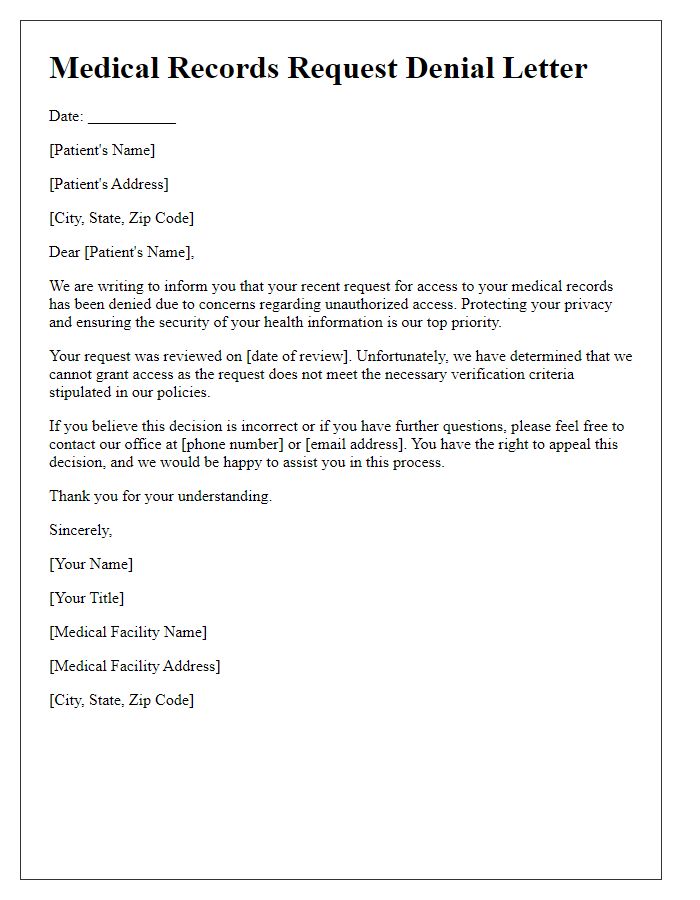

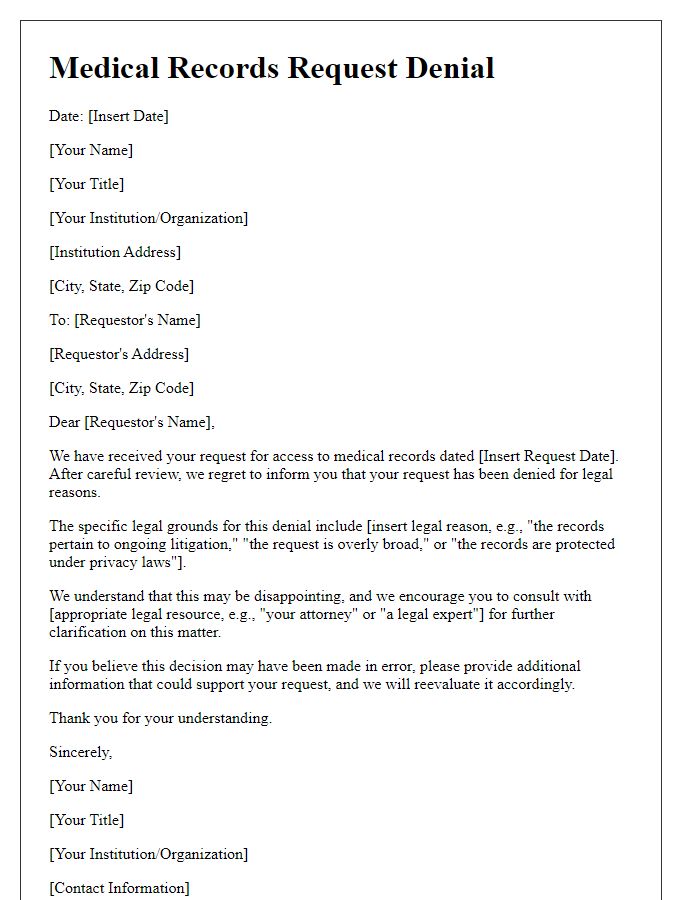
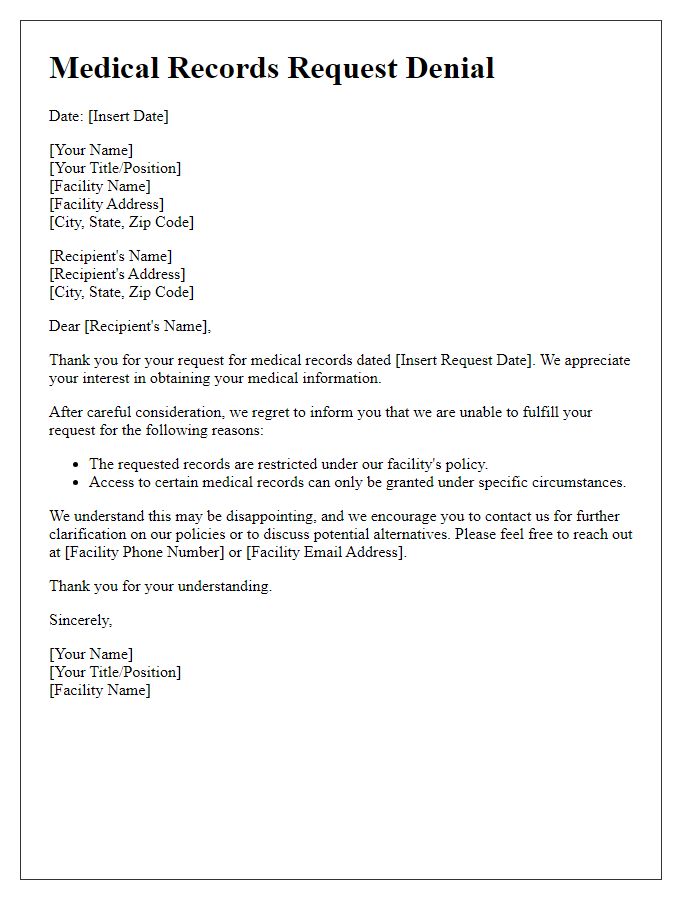

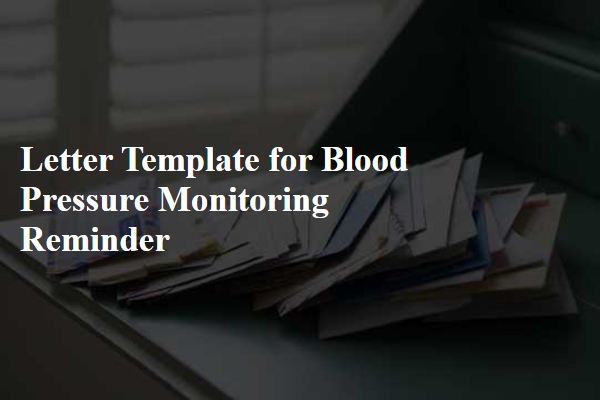
Comments